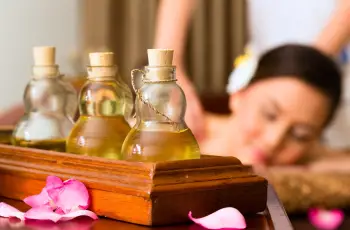
Cleansing Oils in Skin Care Products: Are They Right for You?
Cleansing oils have gained significant popularity in skincare routines over the past few years.
As a dermatologist, I often receive questions about how cleansing oils work, which skin types can benefit from them, and if they can cause acne or other skin issues.
Here, I’ll break down the benefits of cleansing oils, how they work, who should use them, and offer some tips for incorporating them into your skincare routine.
What Are Cleansing Oils?
Cleansing oils are skincare products designed to break down oil-based impurities on the skin, including makeup, sunscreen, and excess sebum.
They are typically made by combining oils like mineral oil, jojoba oil, or essential oils with emulsifiers.
The magic happens when water is added: the oil transforms into a milky emulsion, which rinses away cleanly, leaving your skin feeling clean without stripping it of its natural oils.
How Do Cleansing Oils Work?
Cleansing oils function by attracting and binding to oil-based impurities. When you apply the oil to dry skin, it dissolves makeup, dirt, and excess sebum.
Once you add water, the oil emulsifies into a lighter, milky consistency that can be easily rinsed off, leaving your skin clean, soft, and hydrated.
Oil breaks down oil: Cleansing oils are great for breaking down makeup and sebum (skin’s natural oils), which can be difficult to remove with traditional water-based cleansers.
Hydrating properties: Many oils are packed with fatty acids, which can provide hydration and nourishment, leaving the skin moisturized rather than dry.
Gentle facial massage: The application of cleansing oils often involves massaging, which can help with circulation and relaxation.
Which Skin Types Can Use Cleansing Oils?
One of the great things about cleansing oils is that most skin types can use them, and they can be tailored to meet specific needs:
Oily Skin: Cleansing oils can effectively remove excess sebum, making them a great option for those with oily or acne-prone skin.
The oil helps dissolve stubborn oils and makeup without leaving residue.
Dry Skin: Dry skin types can benefit from the nourishing properties of cleansing oils, which hydrate and lock in moisture, preventing the skin from feeling stripped or tight after cleansing.
Sensitive Skin: If formulated well, cleansing oils are gentle and soothing, making them ideal for sensitive or eczema-prone skin. Look for oils with calming ingredients to avoid irritation.
Normal/Combination Skin: Cleansing oils can work well for normal or combination skin, offering deep cleansing without drying out or irritating the skin.
Do Cleansing Oils Cause Acne?
Properly formulated cleansing oils will not clog pores or cause acne. The key is to choose oils that are non-comedogenic, meaning they won’t clog your pores.
While oil may seem counterintuitive for acne-prone skin, the right cleansing oils can actually help manage oil production.
Here’s why:
Dissolve excess sebum: Cleansing oils break down and dissolve sebum, which can otherwise mix with dead skin cells and clog pores.
Antimicrobial benefits: Some oils contain polyphenolic compounds, which can have antimicrobial effects and help prevent acne-causing bacteria from growing.
However, not all oils are good for acne. If you’re acne-prone, be cautious with oils that have a higher comedogenic rating (meaning they are more likely to clog pores). These oils include:
Coconut oil, Olive oil, Almond oil, Castor oil, Cocoa butter
Jojoba oil (only specific varieties)
These oils, especially when used in high concentrations, can leave a residue on the skin, contributing to clogged pores and breakouts.
How to Use Cleansing Oils
Using a cleansing oil properly is essential for getting the best results. Here’s how to incorporate it into your routine:
Start with dry skin: Apply a quarter-sized amount of cleansing oil to your dry face. If you have oily skin, you may need less oil.
Massage gently: Massage the oil onto your face using light, circular motions for 30-60 seconds. Pay extra attention to the T-zone (forehead, nose, and chin) and any areas with makeup buildup.
Emulsify: Wet your hands with lukewarm water and continue massaging. The oil will turn into a milky emulsion.
Rinse thoroughly: Rinse your face for 30 seconds or longer to remove any oil residue. You can follow up with a second water-based cleanser (if desired) to ensure a thorough cleanse.
Pat dry: Gently pat your face with a soft towel. Follow up with your regular skincare routine.
Tips:
Use once or twice daily, depending on your skin needs.
Patch test any new oils to ensure you don’t have an allergic reaction or irritation.
Store oils in a cool, dark place to preserve their quality.
Do Cleansing Oils Slow Sebum Production?
It’s a common concern, especially for those with oily or acne-prone skin: “Will cleansing oils make me more oily?”
The answer is no—properly formulated cleansing oils will not increase sebum production. In fact, they help balance your skin by removing excess sebum, dirt, and impurities.
The oil in the cleanser doesn’t penetrate the pores in the same way your skin’s natural oil does, so it won’t trigger more oil production.
In fact, a good cleansing oil can actually prevent your skin from overcompensating by producing excess oil, which often happens with overly harsh cleansers.
Popular Cleansing Oils
Here are some of the most popular cleansing oils, based on their effectiveness and skin benefits:
Jojoba Oil: Often considered close to the skin’s natural sebum, this oil is great for balancing oily skin without clogging pores.
Argan Oil: Hydrating and nourishing, argan oil is excellent for dry and sensitive skin.
Marula Oil: Packed with antioxidants, this oil is ideal for dry or mature skin, providing moisture and protection.
Rice Bran Oil: Known for its mild nature, rice bran oil is great for all skin types, especially sensitive skin.
Grapeseed Oil: A lightweight oil that’s excellent for oily and acne-prone skin due to its non-comedogenic properties.
Recommended Cleansing Oils for Acne-Prone Skin
If you’re dealing with acne but want to try a cleansing oil, here are some great non-comedogenic options:
Tatcha Pure One Step Camellia Cleansing Oil: A luxurious cleansing oil that’s great for all skin types, including acne-prone skin.
DHC Deep Cleansing Oil: Made with olive oil, this oil deeply cleanses while being gentle on the skin.
Clinique Take the Day Off Cleansing Oil: This oil removes makeup and impurities without leaving a greasy residue.
Kose Softymo Speedy Cleansing Oil: A budget-friendly option that emulsifies into a milky consistency and rinses clean.
Conclusion: Should You Add a Cleansing Oil to Your Routine?
Incorporating a cleansing oil into your routine can be a great way to cleanse your skin without stripping it of essential moisture.
Whether you have oily, dry, sensitive, or combination skin, there’s likely a cleansing oil that will benefit you.
For acne-prone skin, it’s essential to choose a cleansing oil with non-comedogenic ingredients and to avoid oils that are too heavy.
When used correctly, cleansing oils can help to gently remove impurities and excess oils without aggravating your acne.
If you’re unsure which cleansing oil is right for you, consider taking a quiz or consulting with a dermatologist to find the best products for your unique skin needs.


